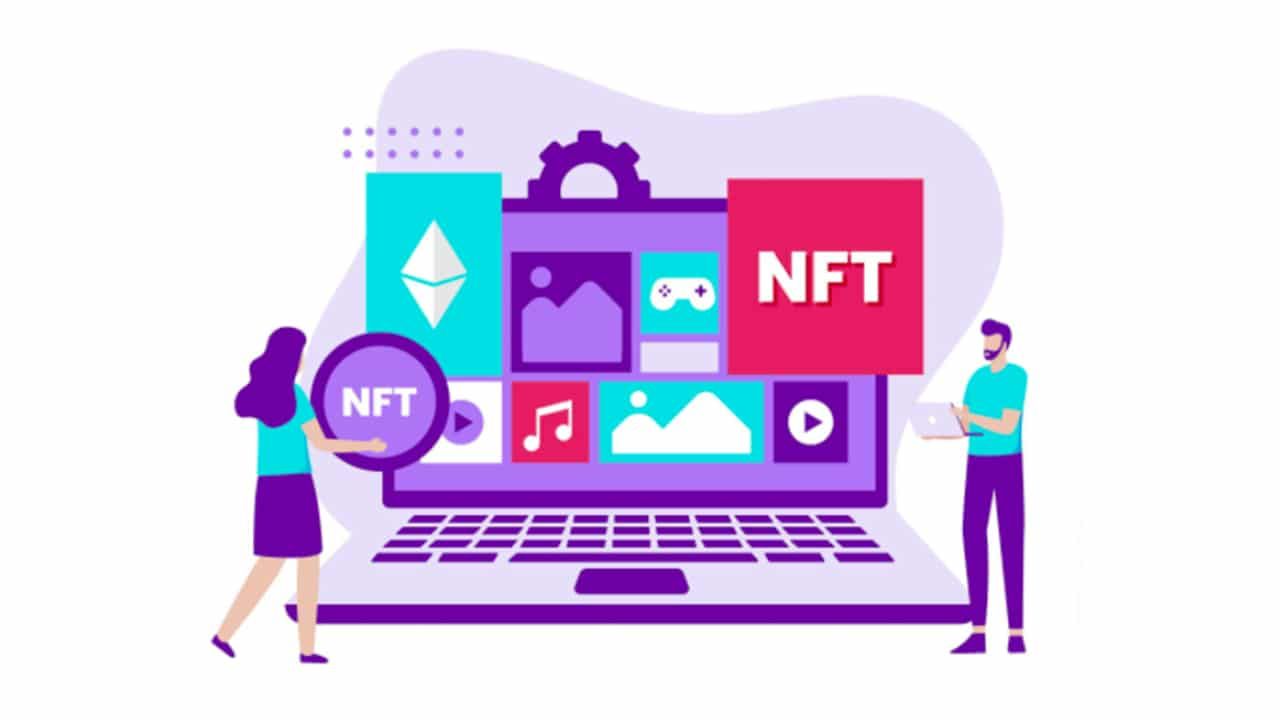
Within the last year or two, non-fungible tokens (NFTs) have boomed in popularity. And, whether you agree with the hype or not, it’s clear there is an immense amount of money in this new digital asset class.
But just like regular cryptocurrency investing, NFT investing isn’t something you can hide under the rug from the IRS. In fact, NFT taxes work similarly to cryptocurrency taxes, meaning you need to accurately report your capital gains and activity.
If you’re wondering how to file taxes for NFTs and how you can track your income, our NFT tax guide is for you.
What Is An NFT?
NFTs are unique digital assets that verify ownership of goods using blockchain technology.
Usually, NFTs are created as artwork or as collectibles for sports, music, and movie fans. Metaverse games like The Sandbox even let you buy and trade NFTs of virtual real estate with other players.
This variety of use-cases means NFTs are a versatile technology. But in the eyes of the IRS, NFTs are still a gray area. In fact, the IRS hasn’t even announced if it considers NFTs as being property or collectibles.
Because of the lack of clarification, it’s crucial that investors understand how NFT taxes work and what strategies you can use to avoid overpaying at tax time.
How Do Taxes On NFTs Work?
NFTs are blockchain-based assets. And, since investors typically buy or sell NFTs using cryptocurrencies like Ethereum, this creates a crypto-to-crypto transaction. This means you'll likely have to pay taxes.
Here are some common examples of taxable events you can create with NFTs:
- Selling an NFT for cryptocurrency
- Trading one NFT for another NFT
- Purchasing an NFT with cryptocurrency
- Earning royalties from your NFTs
Buying and selling NFTs are the two events most investors will likely encounter. But generally, if you’re earning income from NFTs in some fashion, you’re subject to taxes.
Purchasing NFTs
Because dealing with NFTs often creates crypto-to-crypto transactions, you have to report any capital gains when you buy or sell NFTs.
Here’s an example: let’s say you bought a VeeFriend NFT for one ETH. This equals around $3,500 at current market value. However, you actually bought your one ETH when it was only worth $1,000.
In this event, you owe capital gains tax on your ETH’s increase in value. Specifically, you’re realizing $2,500 in capital gains because you’re exchanging the ETH you bought at $1,000 for your new NFT that is worth $3,500.
Time is also an important factor here. This is because capital gains are either short or long-term depending on how long you’ve held a capital asset before selling. Here are the differences investors should know.
Short Version: When you buy an NFT, you likely owe taxes on your crypto gains, not the NFT (yet at least).
Selling NFTs
The same capital gains logic applies for selling NFTs as with buying this digital asset.
When you sell NFTs, you can create capital gains if you sell the NFT for more than you purchased it for. So, if you end up selling a Bored Ape NFT that you bought for $40,000 worth of ETH for $45,000, that’s $5,000 in capital gains.
Short Version: If you sell your NFT, it can create a taxable gain (or loss).
Are NFT Creators Taxed?
If you’re a digital creator who sells NFTs, it’s also important to consider tax implications so you’re not caught off guard when filing.
NFT creators currently have somewhat clearer rules than investors. The first thing to note is that minting an NFT isn’t a taxable event. So, you can create NFTs, hold them, and not worry about having to pay taxes.
However, if you sell NFTs on marketplaces like OpenSea or through a private sale, you have to pay taxes. This is taxable as ordinary income, so how much you pay depends on your tax rate which ranges from 10% to 37%.
Honestly, this is usually going to be done as a business. So, if you're creating and selling NFTs, the rules of taxability of it are the same as creating a regular piece of artwork and selling it. However, this also means that you can deduct eligible business expenses as well - meaning you likely won't pay taxes on the full amount of the same, just the net profit you actually made.
Short Version: Create an NFT and sell it, it's probably a business or hobby income.
What About NFT Donations?
Cryptocurrency and NFT donations are becoming more popular as both asset classes emerge. In fact, companies like The Giving Block are already in place to help investors donate to nonprofits and charities.
According to TokenTax, donating an NFT isn’t a taxable event. Furthermore, you can leverage NFT donations to offset some gross income if you (1) held the NFT for over one year, (2) you donated to a 501(c)(3) organization, and (3) you donated your NFT directly to the organization.
How To Report Your Taxes On NFTs
The IRS currently treats virtual currencies as property. However, the IRS hasn’t clarified if it treats NFTs as property or as collectibles.
If the IRS considers NFTs as property, filing taxes is similar to cryptocurrency taxes. This means you have to report short and long-term capital gains and pay taxes depending on your income.
However, the IRS has different rules for taxes on collectibles. The main difference is that collectibles like artwork and coins are taxed at 28%, which is could be higher than long-term capital gains taxes.
You use Form 8949 to report sales and any capital gains and losses on your capital assets to the IRS. The good news is that all short-term gains are taxed as ordinary income, so it doesn’t matter if the IRS treats NFTs as property or collectibles under this tax scenario.
But if you create a taxable event with assets you’ve held for 12 months or longer, the difference in classification begins to matter. This frustrating lack of clarification means you have to use your judgement when filing your taxes. However, according to IRC Section 408(m)(2), collectibles include:
- Works of art
- Rugs or antiques
- Metals or gems
- Stamps or coins
- Alcoholic beverages
- Any other tangible personal property that the IRS determines is a “collectible” under IRC Section 408(m).
NFTs can be considered art, but they certainly aren’t tangible. Plus, some NFTs have additional utility like giving owners voting rights. Ultimately, these factors help assert the case for treating NFTs as property just like cryptocurrencies, which also means avoiding the 28% collectible tax rate.
However, you should still consult a tax professional for questions about filing NFT taxes, especially if you have a significant portfolio.
How To Track Your NFT Income
Bookkeeping is the most important aspect of filing NFT taxes. In other words, you need to track the cost basis of all your digital assets. This means knowing exactly what price you purchased any cryptocurrencies or NFTs at so you can calculate capital gains down the line.
The easiest way to track these figures is to use crypto and NFT tax software. Software like ZenLedger and TokenTax automatically sync transactions from cryptocurrency exchanges to track the cost basis of your various cryptocurrencies.
When you eventually buy an NFT with crypto, this lets you calculate potential capital gains. Plus, crypto tax software automatically creates downloadable tax forms like Form 8949. You can also track ordinary income from sources like cryptocurrency mining and staking.
Granted, crypto tax software is still catching up on all things DeFi and NFTs. However, more DeFi and NFT tax features are coming. And using tax software saves time versus manually tracking all your transactions. This is especially true if you use several exchanges like Coinbase and Binance and want to consolidate your transaction data.
Final Thoughts
A few years ago, the idea of buying ownership of a digital basketball card or piece of virtual land might have been labelled as crazy.
But with the recent surge in cryptocurrency and NFTs, it’s clear there is a lot of opportunity in this space for investors. However, just like regular stocks and ETFs, you need to take bookkeeping and tax filing seriously to avoid penalties.
Crypto tax software like ZenLedger and TaxBit are a great place to start to stay prepared for tax season. Between robust tax software and keeping an eye on IRS changes, you can successfully manage the tax impacts of your digital asset investments.

Tom Blake is a personal finance writer with a passion for making money online, cryptocurrency and NFTs, investing, and the gig economy.
Editor: Clint Proctor Reviewed by: Robert Farrington
